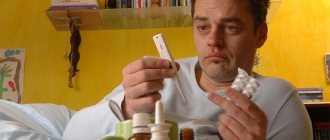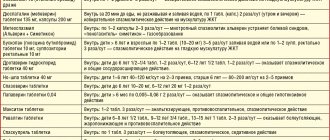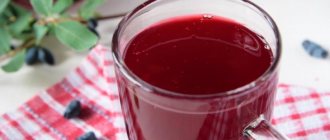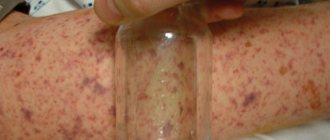Features of the use of drugs for poisoning
If you clearly understand what to drink to prevent poisoning, you will prevent complications. With correctly selected therapy, the following effects will be exerted on the body:
- prevention of dehydration, restoration of water-salt balance;
- normalization of intestinal microflora, improvement of digestibility and digestion of food;
- removal from the body of salts of heavy metals, pathogens and their metabolic products, poisons of a different nature;
- fight against vomiting, diarrhea, heartburn;
- elimination of spasms that cause pain in the abdominal cavity.
Pregnant women, elderly people, and young children need consultation with a specialist. Only a doctor can tell you for sure what helps get rid of poisoning as quickly as possible and without complications.
Sorbents against poisoning
They act as an ambulance, cleansing the most important systems and organs of a person from accumulated poisons, pathogenic microflora, and toxins. After consumption, the urge to vomit, fever and other symptoms of intoxication go away.
No. 1. Enterosgel
Enterosgel is effective against poisoning of any nature. It acts as a sponge, absorbing allergens, pathogenic microorganisms, urea, bilirubin and other dangerous metabolic products. The drug qualitatively cleanses the intestines, improving the composition of the microflora. It is drunk 3-5 times a day in the dosage according to the instructions.
No. 2. Polyphepan
The sorbent is based on wood, which quickly cleanses the body of all dangerous compounds. For poisoning, the amount of medicine is calculated based on the person’s body weight. Before administration, the drug is combined with water and taken as a suspension. Treatment lasts 5 days. Contraindications include acute gastritis and constipation.
No. 3. Smecta
Anti-poisoning powder with enveloping properties is superior in effectiveness to analogues due to the speed of action. To save yourself from an unpleasant condition, you need to combine 0.1 liters. filtered water with a sachet of product. The dose is repeated every 6-7 hours, therapy lasts 5 days.
No. 4. Polysorb MP
"Polysorb" is often drunk when poisoning, mixing weightless powder with liquid in the specified proportions. The resulting suspension forms a “sponge” that instantly absorbs all poisons. "Polysorb" is prescribed for any type of intoxication, even with intestinal infection or mercury poisoning. It is used in hospitals for gastric lavage. To carry out detoxification, it is necessary to calculate the amount by weight and observe the frequency of administration.
Rehydrants for poisoning
A rehydrant is a medicine that must be administered in therapy for poisoning (food or any other) to prevent dehydration and restore electrolyte balance.
No. 1. Regidron
The best remedy available on the market, which must be taken against poisoning. The medicine contains sodium compounds, which quickly restore mineral balance. The drug is sold in sachets; to obtain a sachet solution, dissolve in 0.5 liters. water. Immediately after poisoning, within 1 hour, a person needs to take his dosage (10 ml of solution per 1 kg of weight). Then the volume is halved.
No. 2. Trihydron
Analogous to Regidron, but more affordable in terms of pricing. Concentrates about 8 elements essential for the body, each of which performs a specific function. The drug is supplied to pharmacy shelves in a sachet; the contents of each sachet are diluted with water before use.
Enzyme preparations for poisoning
This group of medications is widely used for alcohol intoxication, poisoning from poor-quality food or toxins. Medicines relieve the burden on the pancreas, stomach, and other important organs.
No. 1. Mezim
Envelops the mucous membranes of the stomach, protecting them from the influence of hydrochloric acid. Improves the functioning of the digestive tract, relieving nausea and vomiting. The drug is approved for use by all categories of persons starting from 3 years of age. It is drunk according to the instructions. Among the prohibitions is intestinal obstruction.
No. 2. Festal
Enzyme tablets for poisoning based on active compounds are taken once or in a course lasting 5 days (frequency of use - three times a day). Contraindications include hepatitis, diarrhea, cholelithiasis, and intestinal obstruction.
Important!
If it is necessary to eliminate the main signs of intoxication, including pain, do not take NSAIDs (Nimesil, Analgin, etc.). They irritate the walls of the stomach and worsen the condition.
Features of the clinical course of food poisoning
Food poisoning can occur due to the consumption of spoiled, expired food, as well as dishes contaminated with an intestinal infection (salmonellosis, dysentery, E. coli). Symptoms of the disease develop during the first 6 hours . The rate of their increase depends on the cause of the disease, the amount eaten, the condition of the person’s body and his age.
Please note that children, pregnant women and the elderly are more susceptible to food poisoning. They are more susceptible to severe disease and complications.
The main signs of food poisoning include:
- nausea followed by vomiting, which brings relief. In the vomit you can see the remains of food eaten, which has not yet had time to be digested. With repeated vomiting, only bile and gastric juice come out;
- profuse diarrhea. The type and consistency of stool depends on the cause of poisoning. So, with salmonellosis they will be greenish and foamy, and with dysentery they will be watery, streaked with blood. The number of trips to the toilet can exceed 20 times a day. Repeated diarrhea leads to rapid dehydration;
- hyperthermia - an increase in body temperature. With an intestinal infection, it can rise to 39 degrees. The stronger the intoxication, the higher the temperature;
- Abdominal pain can be sharp or aching. With inflammation of the gastric mucosa, it is localized in the epigastric region of the abdomen, with liver damage - in the right hypochondrium. If the pancreas suffers as a result of poisoning, the pain becomes acute and irritating. With increased gas formation, flatulence, intestinal colic is observed;
- headache, general weakness, dizziness - signs of intoxication syndrome;
- tachycardia – rapid heartbeat, in which the pulse rate exceeds 100-120 beats/min.
In case of severe poisoning, for example, in the case of eating poisonous varieties of mushrooms, damage to the central nervous system develops . The patient may lose consciousness and enter a deep coma. He may experience hallucinations and seizures (as with epilepsy).
Antispasmodics for poisoning
For poisoning, you need to take those medications that will relieve discomfort in the form of colic, pain and vomiting. Antispasmodics quickly relieve signs of illness by relaxing smooth muscles.
No. 1. No-shpa
"No-shpa" has a minimum number of contraindications. The medicine is taken three times a day, 2 units. You are allowed to stick to the course for no more than 2 days. It is forbidden to use this product if you have low cardiac output syndrome, severe kidney and liver diseases, or problems with the absorption of galactose and lactose.
Features of diagnosis and treatment
Only a qualified doctor can diagnose food poisoning and prescribe treatment, after collecting an anamnesis, examining and examining the body.
Remember that treatment for food poisoning can only be prescribed by a doctor. It is prohibited to buy any medicines on your own, at random or on the advice of friends and try to cure yourself at home.
Symptoms of food poisoning are not specific; they are also observed in other pathologies . For example, the flu can begin with fever, vomiting and diarrhea, and abdominal pain and flatulence can be signs of acute pancreatitis.
Medicines for vomiting and poisoning
Directional drugs should be taken in case of poisoning to stop excessive vomiting. Medicines slow down motor skills and stabilize the condition.
No. 1. Domrid
The drug copes with vomiting, nausea, pain, heartburn. You should drink 1 tablet 4 times a day. It is allowed to adhere to therapy for no more than 2 days. Occasionally negative reactions occur. The medication is contraindicated for pituitary tumors, liver, heart and kidney failure, bleeding in the gastrointestinal tract, and intestinal obstruction.
No. 2. Cerucal
"Cerucal" has established itself as an effective antiemetic agent. You need to drink it 2 tablets 3 times a day half an hour before meals. The medicine can provoke negative reactions such as drowsiness, dizziness and thirst. Contraindications include intestinal atony, bleeding in the gastrointestinal tract, flatulence, ulcers, and biliary dyskinesia.
Treatment
If signs of intestinal infection are evident, it is necessary to provide first aid to the patient. It means the following:
- Hygiene rules must be observed: the infected person must use separate utensils and towels.
- If you have vomit, you should first rinse your stomach with warm boiled water, you can add a little potassium permanganate. Next, you need to induce vomiting and repeat this process several times until the water is clear.
- It is extremely important not to lead the patient to dehydration. In childhood it develops very quickly. In case of profuse and frequent vomiting, the infected person should be given 20 ml of water every 5-10 minutes. To restore the body, the necessary rehydration agents are prescribed. You should also make sure that the poisoned person drinks 2 liters of water and green tea per day.
- If the vomiting does not stop, you can take an antiemetic.
- For diarrhea, the doctor may prescribe enterosorbents that help remove toxins from the intestines and normalize stool.
- If the temperature is high and the situation of the infected person worsens, the doctor prescribes the necessary antibacterial agents.
After a noticeable improvement in the patient’s condition, he appears to have an appetite, but he must adhere to a special diet for two weeks. In general, you should not eat fresh vegetables and fruits, fried, smoked, spicy, salty, fatty foods, sausages, and milk.
Oatmeal and rice porridge, low-fat fermented milk products, slightly dried white bread, crackers, low-fat broths, steamed cutlets, vegetable purees, boiled or baked vegetables are recommended.
Antibacterial drugs for poisoning
Antibacterial medications are sometimes prescribed for poisoning. It is advisable to take them only for intestinal infections, accompanied by attacks of loose stools and vomiting mixed with blood.
No. 1. Rifaximin
The antibiotic has a wide spectrum of action. The active substances are completely absorbed into the intestines, penetrating into the bloodstream in small quantities. You need to drink 6 mg. every 8 hours. The course is a week. It is worth saying that taking Rifaximin would be the right decision in case of bacterial poisoning.
No. 2. Nifuroxazide
The medicine shows high effectiveness against infections of various etiologies. After treatment, it does not cause dysbacteriosis. The composition is safe and has virtually no adverse reactions. The same applies to contraindications, with the exception of individual intolerance. Reception is carried out 4 times a day for 10 days.
No. 3. Ciprofloxacin
The drug belongs to the group of fluoroquinols. It helps against poisoning due to the complete destruction of pathogenic microflora. The daily norm is 500-1000 mg. The dosage must be divided into 2 doses. It is better to take the medicine after waking up and shortly before going to bed. Therapy lasts 5-15 days depending on the patient’s well-being.
Important!
When treating with antibiotics, it is important to take probiotics in addition. “Bifiform” and “Linex” are considered the best. The products prevent the development of dysbacteriosis. The balance of intestinal microflora is completely restored.
You should not take medications for diarrhea if the condition is accompanied by loose stools. You must wait 2 days for the body to cleanse itself of toxins. Only after this is it allowed to take medications with binding properties. If necessary, antibiotics and other medications are prescribed.
Clinical picture of diseases
In case of poisoning and intestinal infections, similar symptoms appear, which make themselves felt within twenty-four hours. When you notice the first symptoms/signs, you must consult a doctor to receive timely treatment with special medications. Symptoms may include:
- general weakness of the whole body, apathy, lethargy, increased drowsiness;
- attacks of nausea and profuse vomiting, sometimes with blood;
- broken stool – frequent and painful diarrhea is present;
- body temperature rises;
- possible delirium, convulsions, muscle pain, various hallucinations;
- spastic, cramping painful attacks localized in the abdominal area;
- migraine;
- difficulty breathing, shortness of breath;
- hearing and vision deteriorate;
- the victim’s coordination in time and space is impaired;
- increased sweating;
- chills develop;
- dizziness, loss of consciousness;
- coma;
- fatal outcome.
If you notice the above symptoms, immediately seek medical help, as timely treatment will help avoid health problems, as well as death.








